IBC
The use of Intermediate Bulk Containers (IBCs) is a common sight in many modern warehouses, as they are used to transport a wide range of products, including liquids, powders, and food. However, not many people know that these containers were only invented about thirty years ago. In 1992, an employee at a manufacturing firm, Olivier J. L. D’Hollander, sought an alternative to the unwieldy 200-litre drums that were traditionally used to store materials. These drums had a cylindrical shape that made them inefficient for storage and difficult to fill, transport, and empty.
D’Hollander, who was working at Dow Corning S.A., a company that manufactured silicone products, adhesives, sealants, and solvents, decided to invent the first IBC. IBCs were designed as an improved industrial storage container, more space-efficient and cost-efficient than traditional steel drums. Their cubic shape made them easier to store and transport. D’Hollander patented his original IBC design in 1993, and this led to many companies manufacturing these containers. Today, IBCs have become the industry standard for storing materials from food products to cosmetics.
The evolution of IBCs continued, and today, you can find various IBCs with different features and specifications for different industries. The industrial packaging industry is constantly developing new IBCs to meet the needs of their clients. The IBC’s invention has significantly improved the storage and transportation of materials, making them more efficient, cost-effective, and safer. The IBC is a prime example of how innovation can lead to significant improvements in an industry.
An Intermediate Bulk Container (IBC), also known as an IBC, is a reusable, industrial-strength container that is designed for the transport of a wide range of materials. The IBC is a great example of innovation in the shipping industry as it has been created to optimize shipping space while minimizing the weight of shipping containers. This optimization is a clear example of the benefits of supply chain management, as it ensures that every step in the shipping process saves valuable money for both the shipper and the consumer. With a wide variety of designs and purposes, IBCs provide a shipping option for every manufacturing need. The IBC must possess several characteristics such as being cubic in shape for maximum efficiency in stacking and shipping, equipped with a pallet piece or loops, and falling into a specific range of size and storage capacity. Most IBCs are about 45 in. x 45 in. in size with varying heights, and can hold between 750-1200 litres of fluid. There are two types of IBCs: Rigid IBCs and Flexible IBCs. Rigid IBCs are not designed to have any flexibility while being transported, making them ideal for shipping liquids or semi-liquids. They can be made of plastic, metal or a combination of the two, and come in a variety of styles. They can be purchased as new units, rebottled units, or washed units, depending on the consumer’s needs. The main materials used to create Rigid IBCs are plastic, plastic metal composite, carbon steel, and stainless steel. They are used for a wide range of purposes such as shipping chemicals and food-related syrups.
Flexible Intermediate Bulk Containers (FIBCs) are shipping bags that have been used since the 1940s. They were originally made of PVC rubber but switched to woven polyethlene in the 1960s due to its strength and lightweight properties. They became popular in the 1970s for shipping cement powder in the booming oil industry. Today, FIBCs are used for shipping loose solids such as sand and fertilizer. They have a woven fabric design that creates a cube shape for easy and compact storage. They also have loops for lifting and transferring with machines, and various sizes with one, two, or four-loop options. The bags also have a discharge spout for easy opening and emptying. There are different materials used for making FIBCs such as woven plastic, fiberboard, wood, aluminum, and folding plastic. They have many uses such as shipping granulated food products, construction materials, and grains and seeds. They have also been used in disaster relief situations like floods. They offer advantages such as tightly packed materials, lightweight, and efficient shipping of empty containers. Intermediate Bulk Containers (IBCs) are similar to FIBCs and are used in various industries to contain liquids and other items. They can be customized to fit industry needs ans are made of different materials and can have special features such as extra padding.
IBC tanks, or intermediate bulk containers, come in a variety of different types, each suited for specific uses and industries. Food IBC tanks are used for transporting and storing edible items, and adhere to food safety regulations. They are often made of stainless steel for its sanitary properties and ability to be easily cleaned. Rebottled IBC tanks, also known as caged water tanks, are used for transporting large amounts of fresh water and can be customized with valves for easy pouring. They are made with UV-stabilized plastic to prevent contamination. Chemical IBC tanks are designed to safely store and transport chemicals, even dangerous ones, and are made of materials such as carbon steel or stainless steel to meet laws and regulations for chemical containment. Pharmaceutical IBC tanks are used for holding and safely discarding powders and pills in the pharmaceutical industry, and come with full traceability and airtight silicone rings to prevent cross-contamination. Automotive IBC tanks are used for containing items such as paint, oil and engine cleaners, and can help with recycling and measuring liquids. Reconditioned IBC tanks are refurbished models that have undergone testing and cleaning to ensure their durability. Flexible IBC totes are able to be folded and stored, cost-effective, recyclable, and safely stacked. IBC tank heaters are used to quickly heat up contents for transport, and come with fabric wraps and insulation lids to keep heat inside the container and prevent scorching of contents.
Intermediate Bulk Containers (IBCs) are a type of container that are commonly used in various industries for the storage and transportation of items. They come in a variety of different materials such as plastic, stainless steel, carbon steel, and composite materials. These containers are typically reusable and can be washed and recycled when no longer needed.
Intermediate Bulk Containers (IBCs) offer several benefits for businesses that use them to transport and store bulk liquids and powders. Some of the key benefits of IBCs include:
1. Increased Efficiency: IBCs allow for the efficient transportation and storage of bulk liquids and powders. They can hold a large volume of material in a single container, reducing the need for multiple smaller containers and the associated handling costs.
2. Cost Savings: IBCs are often less expensive than traditional drums or barrels, and they can be used multiple times, which can lead to significant cost savings over time.
3. Improved Safety: IBCs are designed to be strong and durable, and they are often made of high-density polyethylene (HDPE) or other materials that are resistant to chemicals and other corrosive materials. This can help to improve safety when handling and transporting bulk liquids and powders.
4. Easy to Use: IBCs are designed to be easy to use, and they typically come with a variety of features, such as easy-to-use valves and ports, that make them simple to fill and discharge.
5. Environmental Benefits: IBCs are often reusable, which can reduce the environmental impact of packaging and shipping bulk liquids and powders. IBCs can also be recycled when they reach the end of their useful life.
6. Flexibility: IBCs can be used for a wide variety of products, including food and beverage ingredients, chemicals and many others. They can be transported by truck, rail and ocean freight, making them a very versatile option.
7. Meets regulations: IBCs are designed to meet the various regulations such as UN, IMDG, ADR, RID and DOT, which ensures the safety and compliance during the transportation and handling.
Overall, IBCs offer many benefits over traditional drums and barrels, and they are an excellent choice for businesses that need to transport and store bulk liquids and powders.
At Arbemu, we pride ourselves on providing our customers with the best possible service. Our team of experts is available to answer any questions you may have and help you find the perfect IBC for your needs.
Don’t hesitate to contact us today to learn more about our wide range of IBCs and how we can help you save time and money on your packaging and transportation needs.
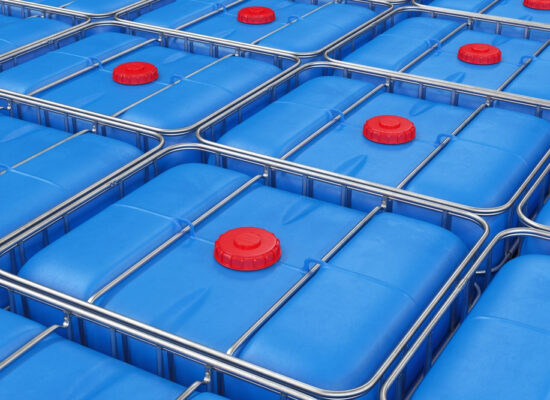
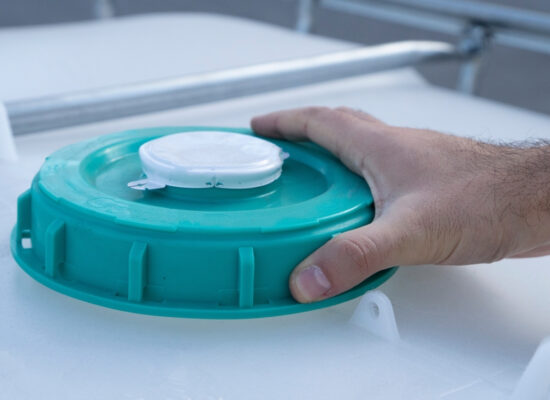
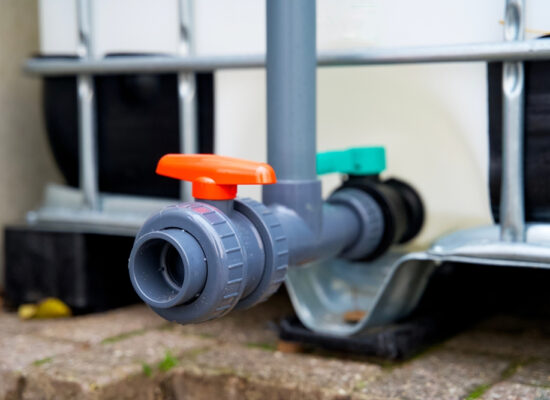
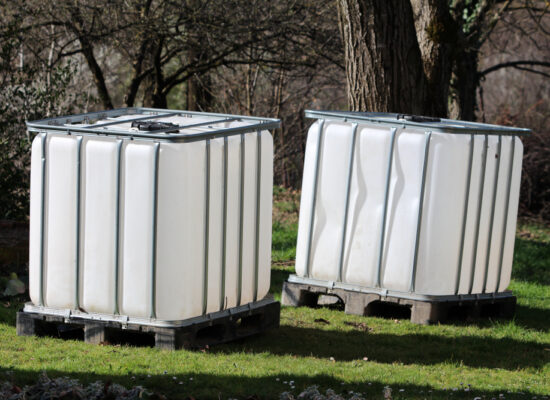
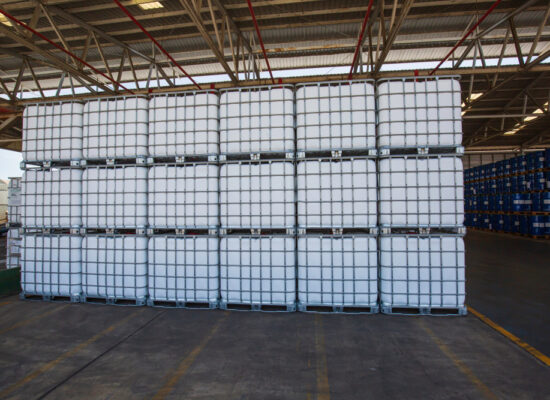
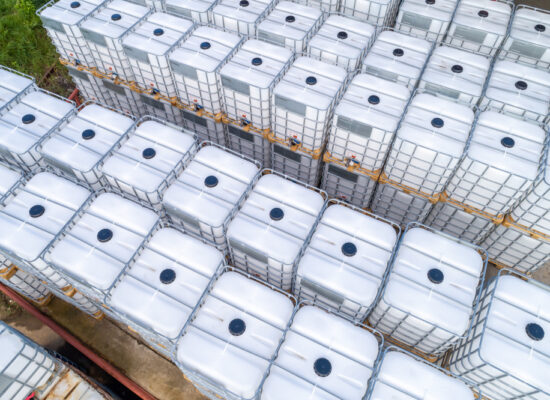
© Arbemu. All rights reserved